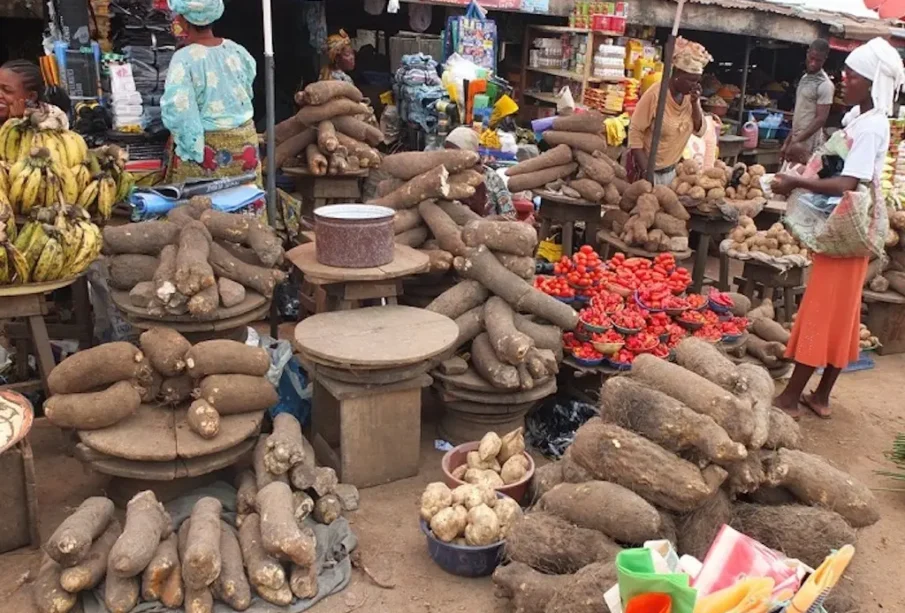Prices of food items rising due to grain hoarders, smugglers, says FCCPC

Food market
The Federal Competition and Consumer Protection Commission (FCCPC) says grain hoarders and smugglers are contributing to food inflation in Nigeria.
Tunji Bello, FCCPC’s executive vice chairman (EVC), spoke on Wednesday during a town hall meeting with industry leaders, micro, small and medium enterprises (MSMEs), market heads, farmers, transporters, and service providers in Kano.
The meeting follows similar interactive sessions held in Abuja and Lagos, as part of FCCPC’s ongoing efforts to curb anti-consumer practices across the country.
Bello revealed that FCCPC investigators had discovered that some “unscrupulous grain merchants” were stockpiling newly harvested grains in warehouses to create artificial scarcity, exacerbating food inflation in Nigeria.
“Without caring for the consequences of their action on fellow countrymen and women, some of these unscrupulous actors go as far as taking some of the food items they had mopped up from the farmers or the markets and smuggling them across the borders to sell at premium, thereby endangering our national food security,” Bello said.
He appealed to the Kano stakeholders to collaborate in ending unethical practices that contribute to price inflation in the national interest.
“Don’t get us wrong; we are by no means saying everyone is guilty here. We only have few bad eggs involved in such unethical practices,” he said.
“It is therefore our collective responsibility to work together to achieve reasonable pricing of goods and services, especially at a time the country is undergoing bold economic reforms which may bring temporary discomfort today but will definitely usher a better economy for us tomorrow.”
In addition to grain hoarding, Bello identified price fixing and artificial barriers imposed by market associations, such as entrance levies, as other unethical practices.
Bello said the FCCPC Act prescribes severe penalties, including fines and jail terms for offenders, but the commission prefers to begin with dialogue, in the “spirit of democracy”.
Bello said President Bola Tinubu is listening to public concerns and has already begun implementing policies aimed at reducing the economic burden on Nigerians.
“We have a very listening President in the person of his excellency, Asiwaju Bola Ahmed Tinubu. He feels for the people and shares their pains and is ever willing to go the extra miles to take measures to cushion the effects of the hardship the ongoing economic reforms may bring,” Bello said.
“The federal government has also commenced the implementation of zero value-added tax (VAT) and excise duties on pharmaceutical products and medical devices. Just as a number of taxes has also been removed to assist micro, small, medium enterprises as well as taxes being removed from public transportation.”
He added that the government’s provision of easy access to credit for public transportation operators to switch from petrol to affordable compressed natural gas (CNG) should lead to reduced fares for passengers.











